Abstract
1. Latency relaxation and twitch tension were recorded simultaneously in single isolated muscle fibres of Xenopus laevis. 2. During low frequency (0.6 or 1 pulse/sec) repetitive stimulation, three successive phases of twitch tension were observed: negative staricase (a slight drop in tension), positive staircase (about 15% increase in tension) and fatigue. At the same time the amplitude of latency relaxation decreased monotonically, and near the peak of positive staircase, the amplitude decreased almost to an undetectable level. 3. The application of caffeine (0.1--1.5 mM) increased peak twitch tension by 15--200%, but decreased the latency relaxation amplitude by 30--93%. 4. The application of Ca-release inhibitors, deuterium oxide and dantrolene sodium, caused a 43--89% decline in peak twitch tension but no change in latency relaxation amplitude. 5. The lack of correlation between changes in peak twitch tension and latency relaxation amplitude suggests that latency relaxation is associated with the mechanism which triggers Ca2+ relase rather than with Ca2+ release itself.
Full text
PDF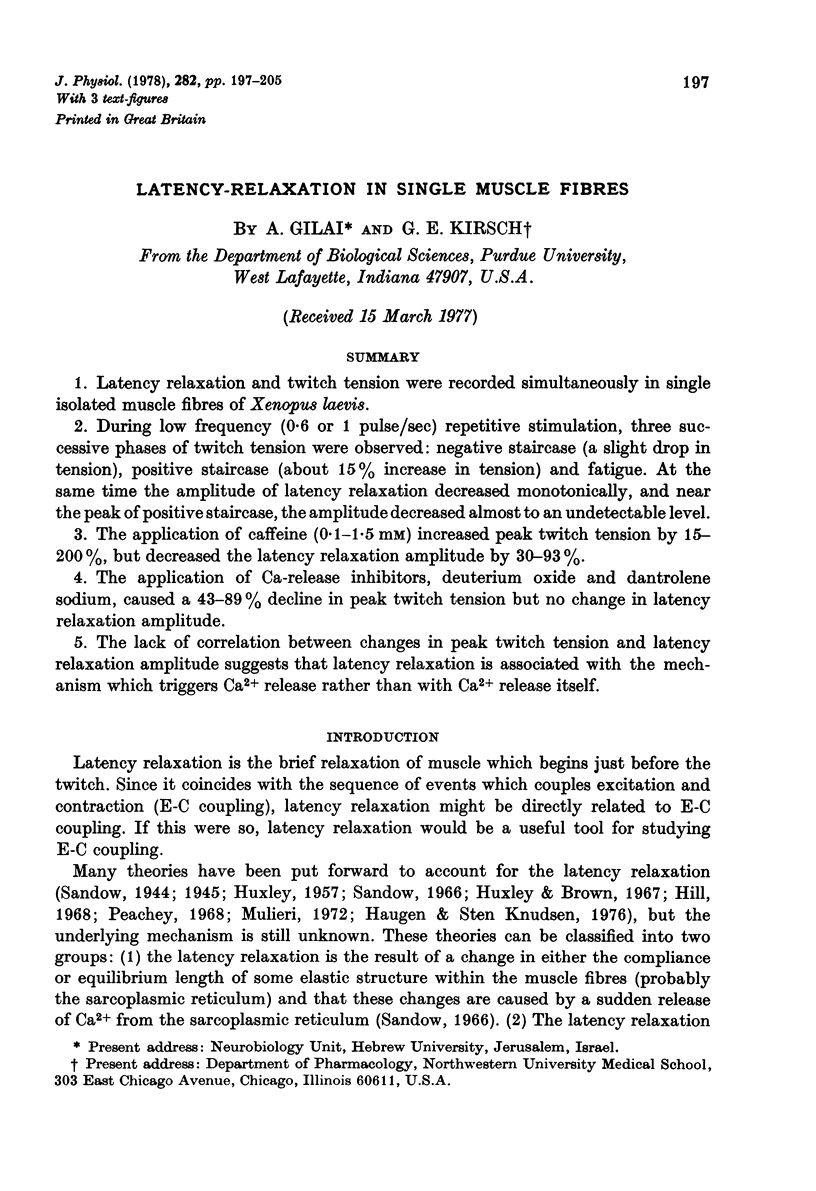
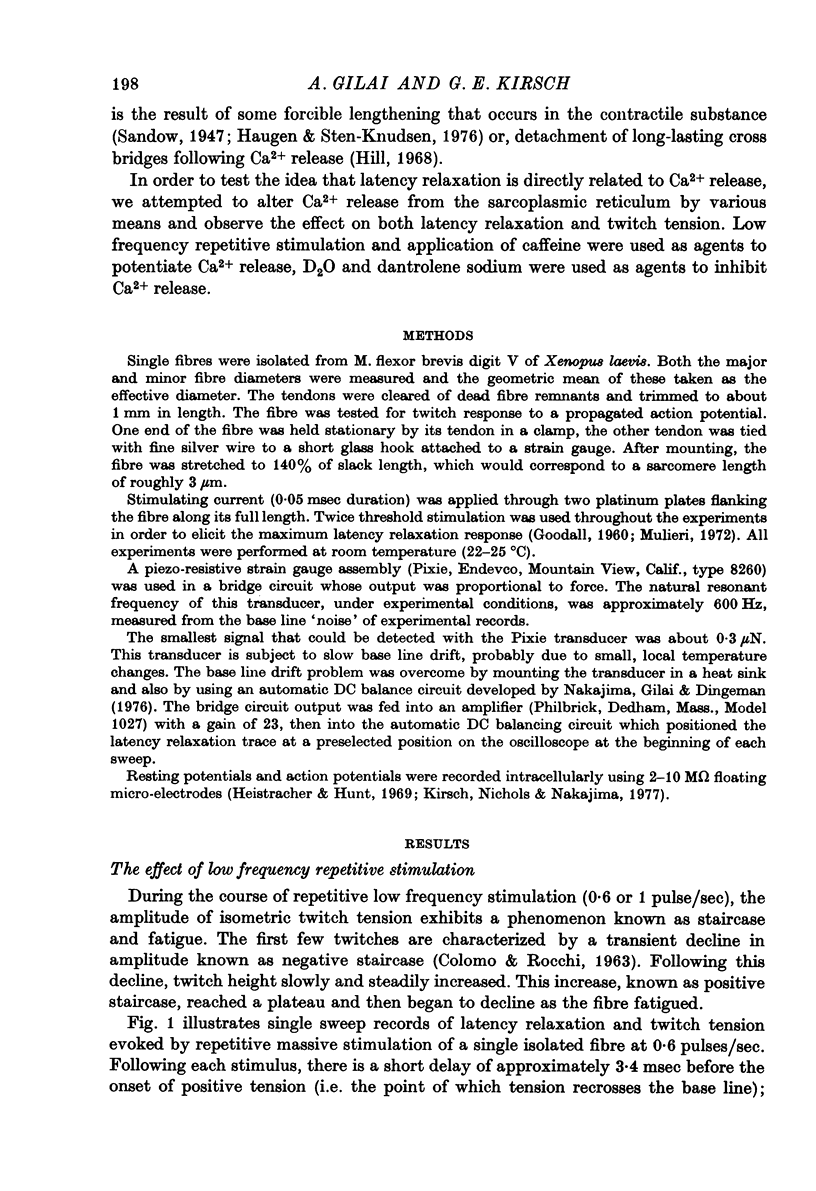
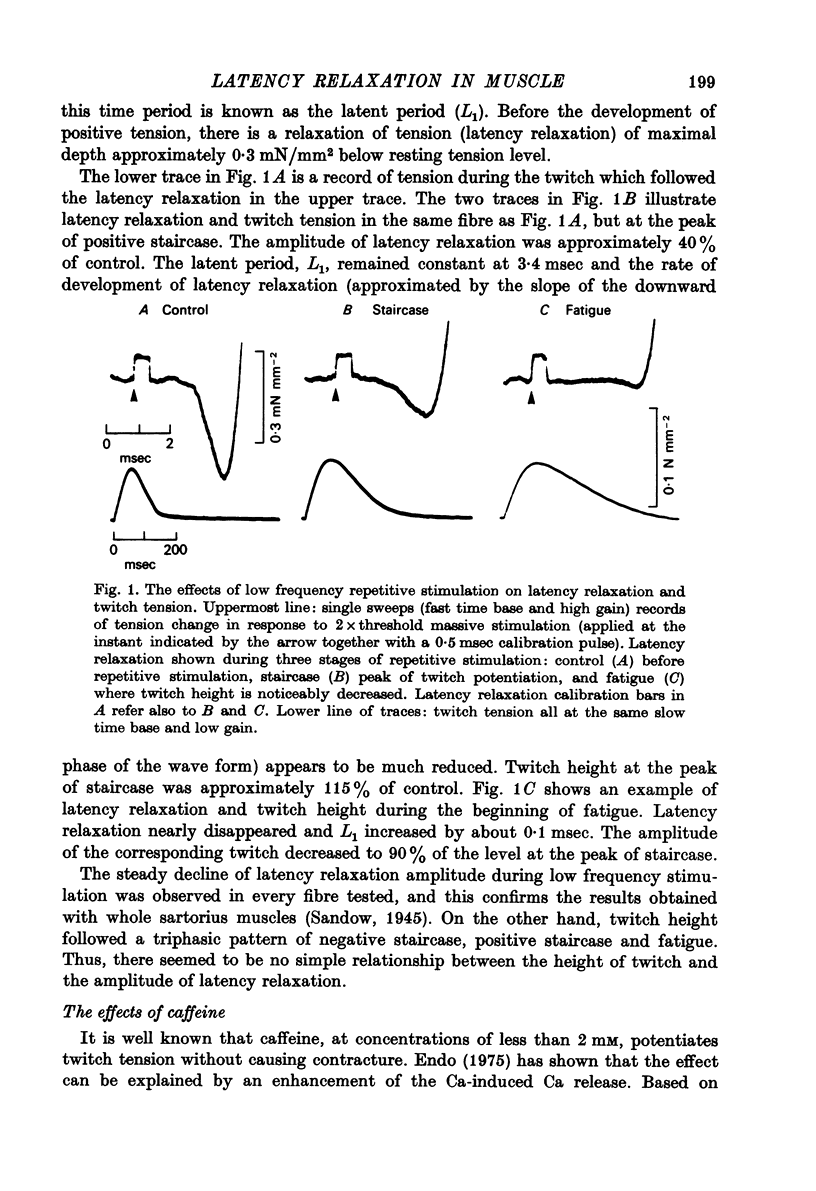
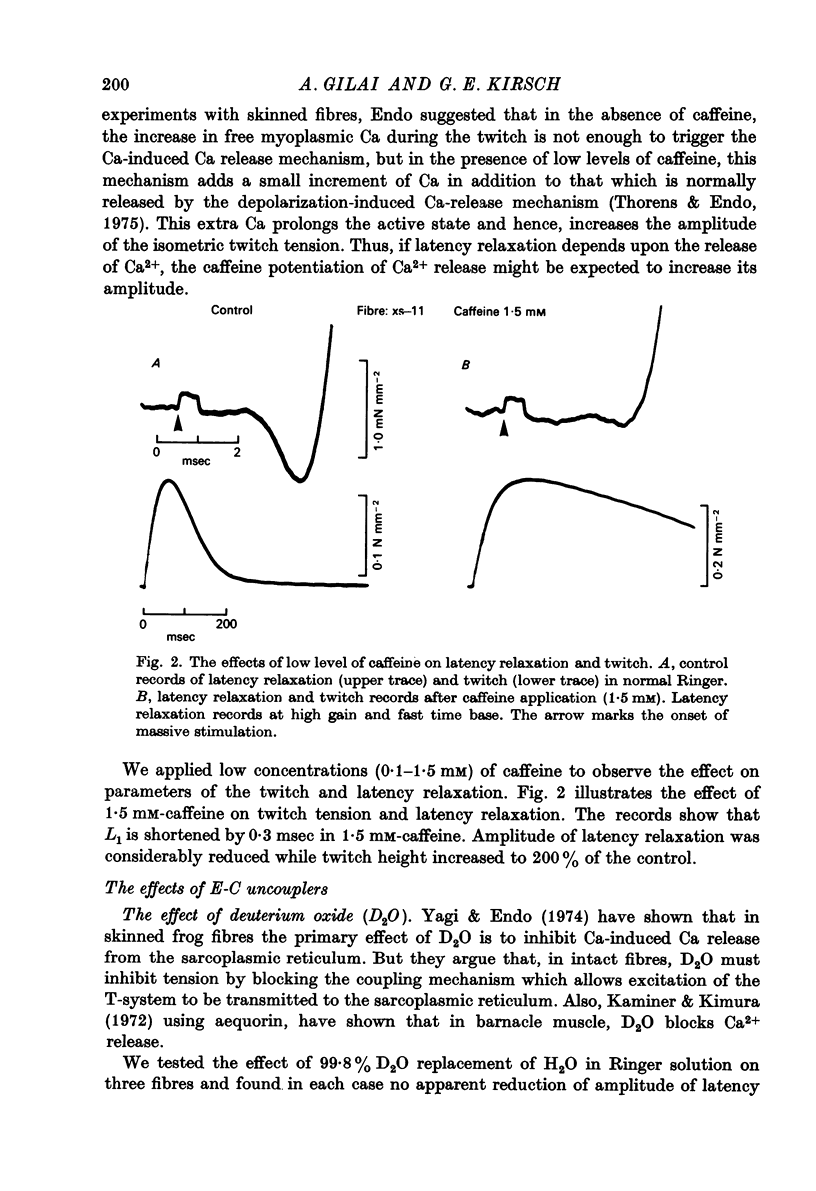
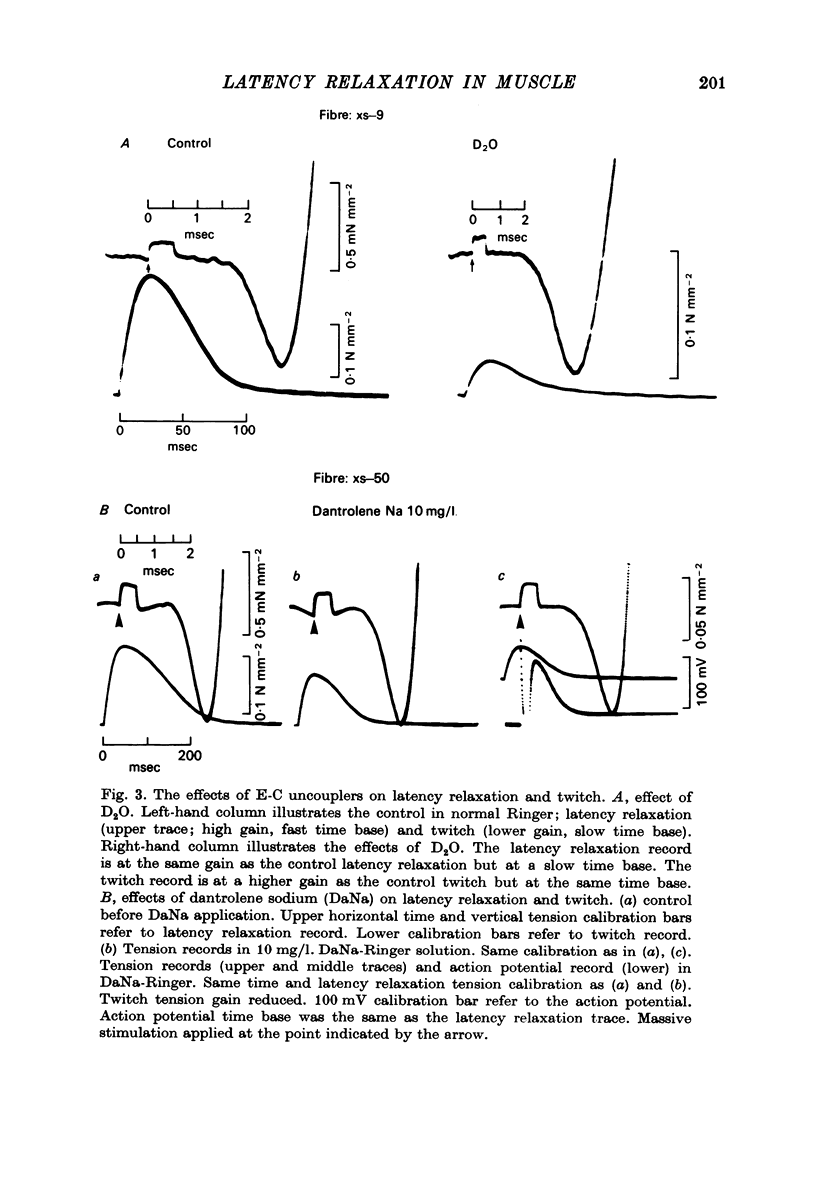
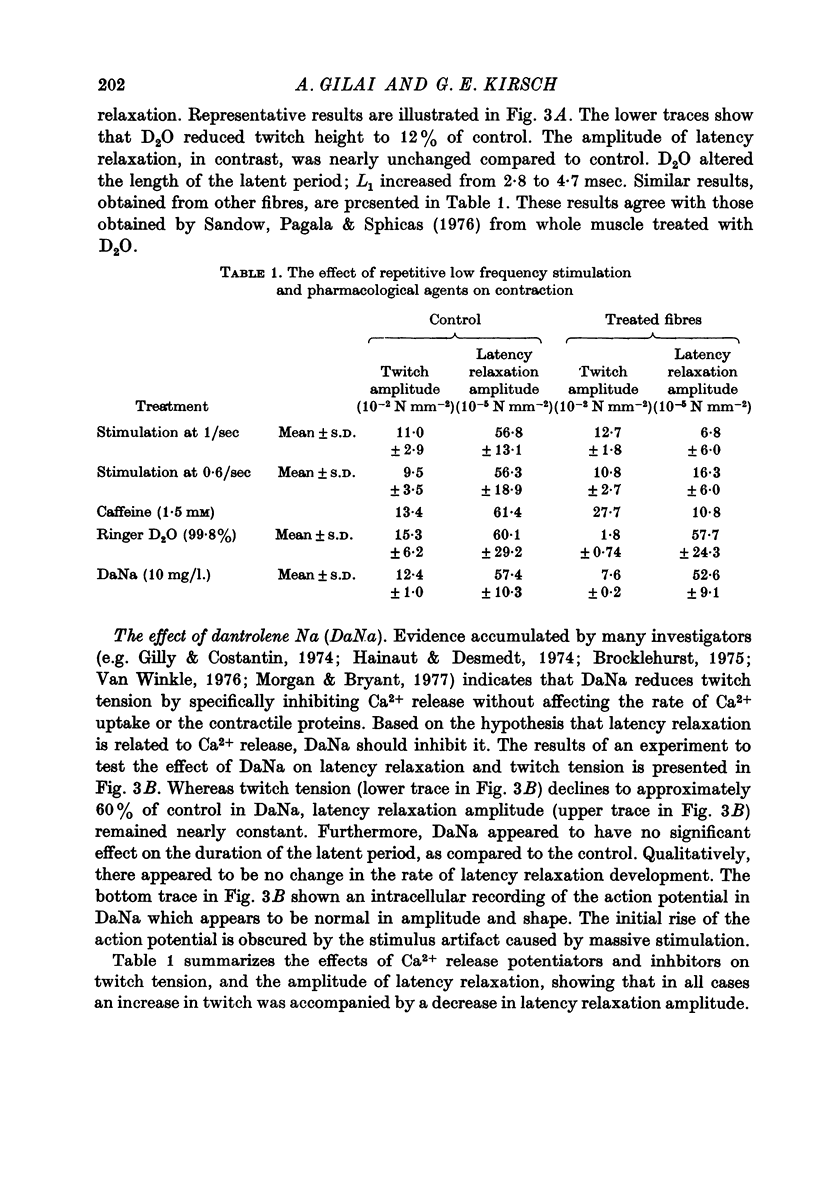
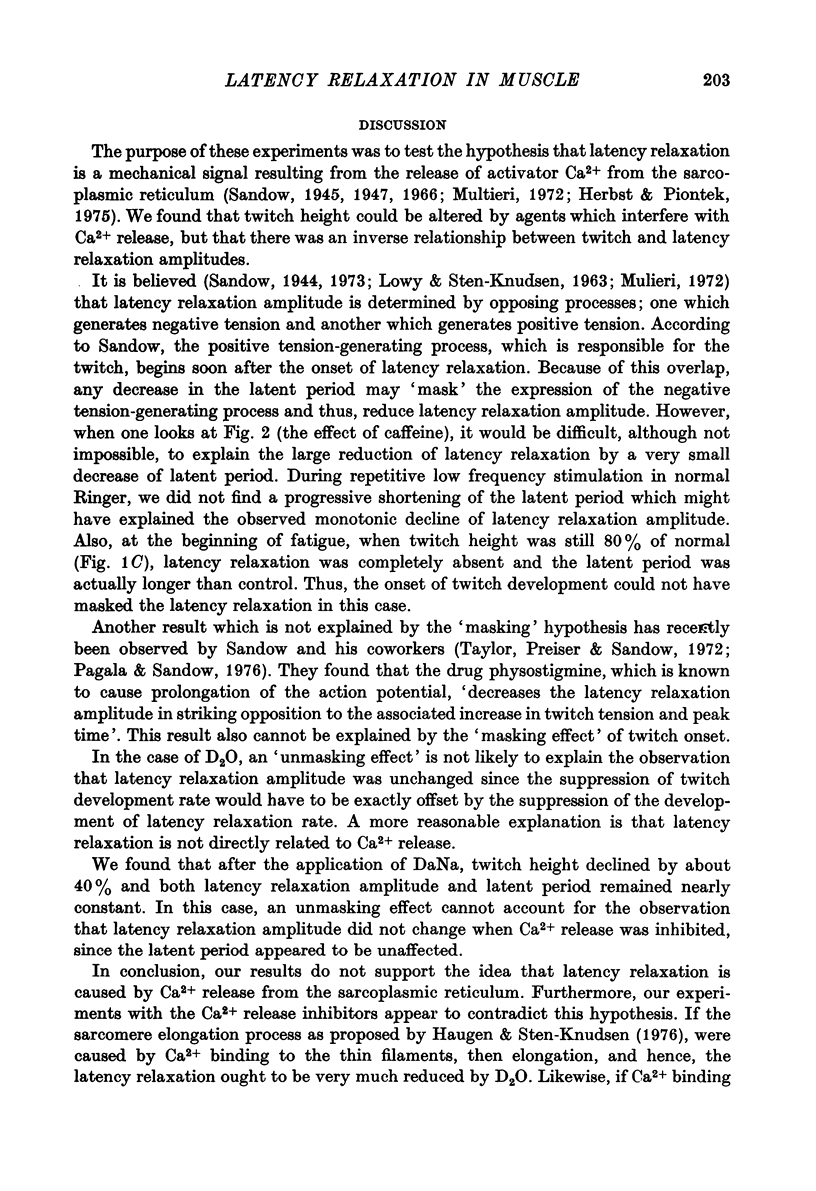
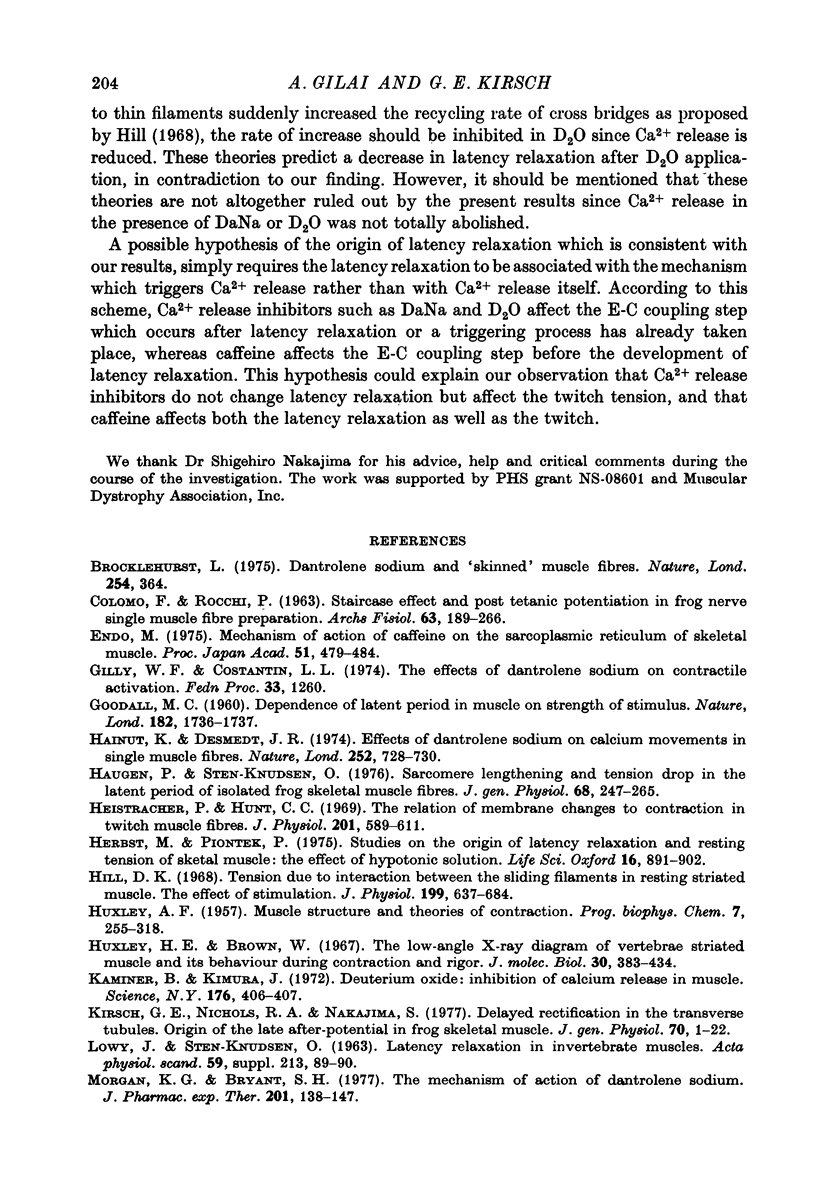
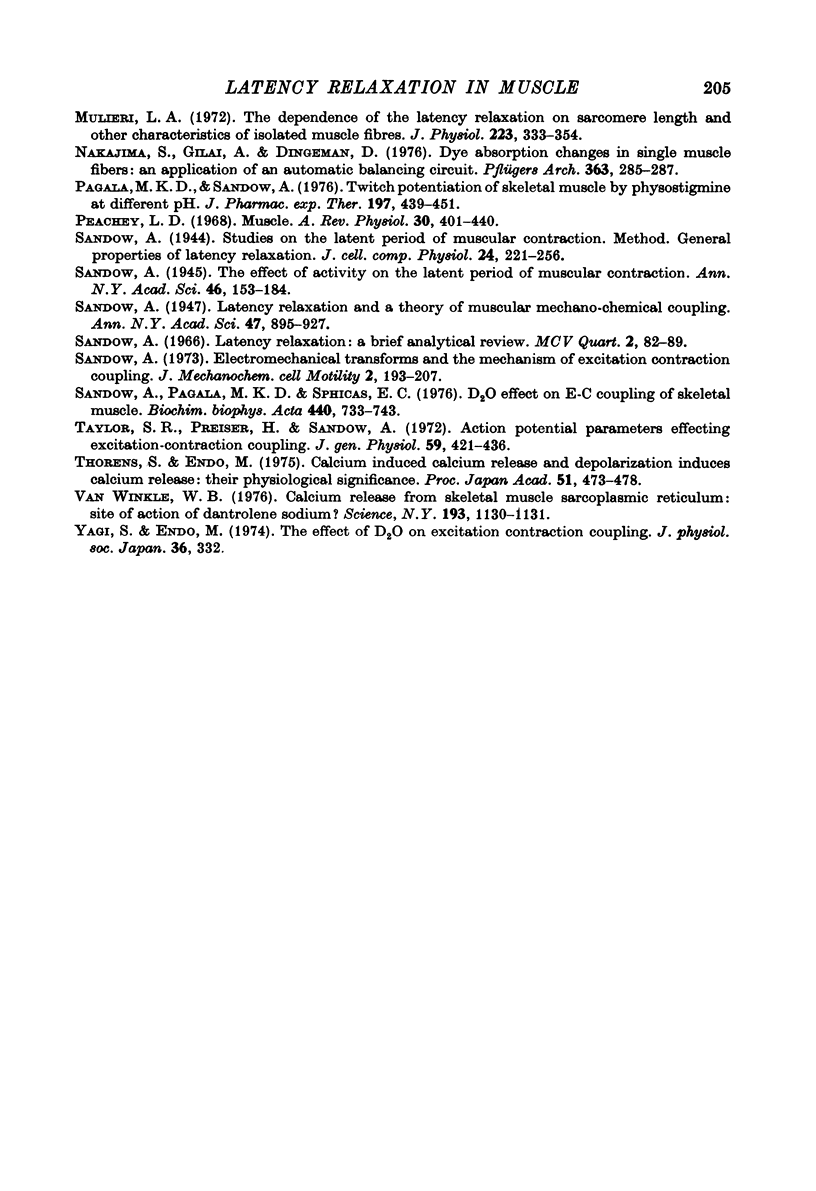
Selected References
These references are in PubMed. This may not be the complete list of references from this article.
- Brocklehurst L. Letter: Dantrolene sodium and "skinned" muscle fibres. Nature. 1975 Mar 27;254(5498):364–364. doi: 10.1038/254364a0. [DOI] [PubMed] [Google Scholar]
- GOODALL M. C. Dependence of latent period in muscle on strength of stimulus. Nature. 1958 Dec 20;182(4651):1736–1737. doi: 10.1038/1821736a0. [DOI] [PubMed] [Google Scholar]
- HUXLEY A. F. Muscle structure and theories of contraction. Prog Biophys Biophys Chem. 1957;7:255–318. [PubMed] [Google Scholar]
- Hainaut K., Desmedt J. E. Effect of dantrolene sodium on calcium movements in single muscle fibres. Nature. 1974 Dec 20;252(5485):728–730. doi: 10.1038/252728a0. [DOI] [PubMed] [Google Scholar]
- Haugen P., Sten-Knudsen O. Sarcomere lengthening and tension drop in the latent period of isolated frog skeletal muscle fibers. J Gen Physiol. 1976 Sep;68(3):247–265. doi: 10.1085/jgp.68.3.247. [DOI] [PMC free article] [PubMed] [Google Scholar]
- Heistracher P., Hunt C. C. The relation of membrane changes ot contraction in twitch muscle fibres. J Physiol. 1969 May;201(3):589–611. doi: 10.1113/jphysiol.1969.sp008774. [DOI] [PMC free article] [PubMed] [Google Scholar]
- Herbst M., Piontek P. Studies on the origin of latency relaxation and resting tension of skeletal muscle: the effect of hypotonic solutions. Life Sci. 1975 Mar 15;16(6):891–901. doi: 10.1016/0024-3205(75)90005-3. [DOI] [PubMed] [Google Scholar]
- Hill D. K. Tension due to interaction between the sliding filaments in resting striated muscle. The effect of stimulation. J Physiol. 1968 Dec;199(3):637–684. doi: 10.1113/jphysiol.1968.sp008672. [DOI] [PMC free article] [PubMed] [Google Scholar]
- Huxley H. E., Brown W. The low-angle x-ray diagram of vertebrate striated muscle and its behaviour during contraction and rigor. J Mol Biol. 1967 Dec 14;30(2):383–434. doi: 10.1016/s0022-2836(67)80046-9. [DOI] [PubMed] [Google Scholar]
- Kaminer B., Kimura J. Deuterium oxide: inhibition of calcium release in muscle. Science. 1972 Apr 28;176(4033):406–407. doi: 10.1126/science.176.4033.406. [DOI] [PubMed] [Google Scholar]
- Kirsch G. E., Nichols R. A., Nakajima S. Delayed rectification in the transverse tubules: origin of the late after-potential in frog skeletal muscle. J Gen Physiol. 1977 Jul;70(1):1–21. doi: 10.1085/jgp.70.1.1. [DOI] [PMC free article] [PubMed] [Google Scholar]
- Morgan K. G., Bryant S. H. The mechanism of action of dantrolene sodium. J Pharmacol Exp Ther. 1977 Apr;201(1):138–147. [PubMed] [Google Scholar]
- Nakajima S., Gilai A., Dingeman D. Dye absorption changes in single muscle fibers: an application of an automatic balancing circuit. Pflugers Arch. 1976 Apr 6;362(3):285–287. doi: 10.1007/BF00581183. [DOI] [PubMed] [Google Scholar]
- Pagala M. K., Sandow A. Twitch potentiation of skeletal muscle by physostigmine at different pH. J Pharmacol Exp Ther. 1976 May;197(2):439–451. [PubMed] [Google Scholar]
- SANDOW A. Latency relaxation and a theory of muscular mechano-chemical coupling. Ann N Y Acad Sci. 1947 May 30;47(ART):895–929. doi: 10.1111/j.1749-6632.1947.tb31742.x. [DOI] [PubMed] [Google Scholar]
- Sandow A. Electromechanical transforms and the mechanism of excitation-contraction coupling. J Mechanochem Cell Motil. 1973;2(3):193–207. [PubMed] [Google Scholar]
- Sandow A., Pagala M. D., Sphicas E. C. Deuterium oxide effects on excitation-contraction coupling of skeletal muscle. Biochim Biophys Acta. 1976 Sep 13;440(3):733–743. doi: 10.1016/0005-2728(76)90055-4. [DOI] [PubMed] [Google Scholar]
- Taylor S. R., Preiser H., Sandow A. Action potential parameters affecting excitation-contraction coupling. J Gen Physiol. 1972 Apr;59(4):421–436. doi: 10.1085/jgp.59.4.421. [DOI] [PMC free article] [PubMed] [Google Scholar]


